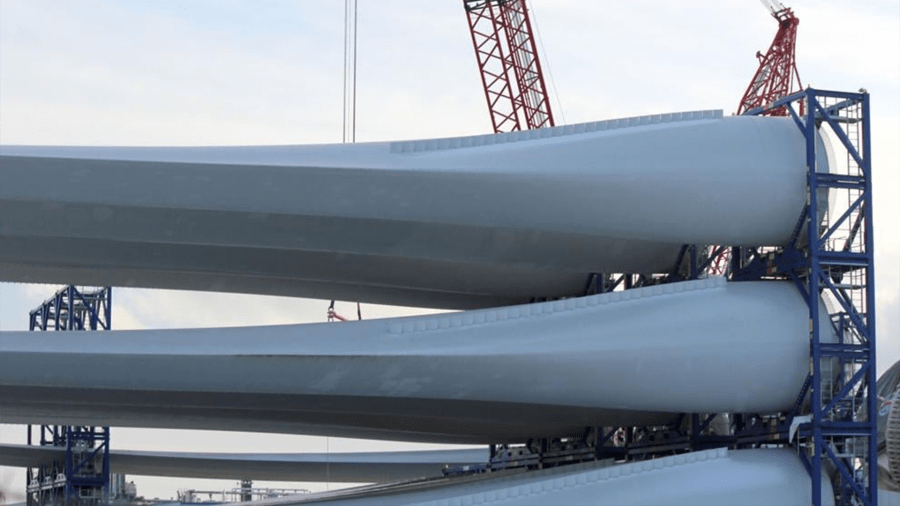Wind project delay risks power stability, grid operator warns

New England Grid Operators Warn of Energy Reliability Risks from Offshore Wind Project Halt
The organizations responsible for managing power generation and the electric grid in New England are expressing serious concerns over the recent decision to suspend the Revolution Wind project, an offshore wind initiative that has been 80% completed. This project was set to deliver clean energy to Connecticut and Rhode Island starting next year. However, the Bureau of Ocean Energy Management has halted the project, prompting the developer, Ørsted, to explore legal options to resolve the issue quickly.
ISO New England, the grid operator, has emphasized that the Revolution Wind project is integral to its planning for both near-term and future grid reliability. The organization highlighted that the project’s expected power output had already been factored into their assessments of supply and demand, as well as the ability to support growing industries reliant on electricity. Recent heatwaves have shown how critical it is to have all available resources to meet high electricity demands and maintain necessary reserves.
“Delays in the availability of new resources will adversely affect New England’s economy and industrial growth, including potential future data centers,” ISO-NE stated. The grid operator noted that the push for more widespread electric heating and transportation in Massachusetts and other states could increase grid demand by about 11% over the next decade.
The grid operator also pointed out that demand for electricity in the region has fluctuated significantly. This year, the summer peak reached 24,803 megawatts, while the winter peak was at 20,056 MW. By 2034, the forecast expects summertime peaks to reach 26,897 MW and wintertime peaks to hit 26,020 MW. These figures underscore the need for reliable energy infrastructure to meet rising demand.
Concerns Over Policy Reversals and Investor Confidence
Power generators in New England are particularly concerned about the Trump administration's actions, which they believe undermine investor confidence and threaten long-term energy reliability. Dan Dolan, president of the New England Power Generators Association, expressed deep concern over the billions of dollars invested in projects that have met all legal requirements and are nearly complete. He warned that such policy reversals could raise costs for consumers and damage the credibility of energy markets.
The Bureau of Ocean Energy Management cited national security interests and the prevention of interference with the exclusive economic zone as reasons for halting the Revolution Wind project. However, this move has drawn criticism from state leaders, including Connecticut Governor Ned Lamont and Rhode Island Governor Dan McKee, who have pledged to pursue every avenue to reverse the decision.
This is not the first time the Trump administration has taken steps to halt offshore wind projects. Earlier this year, a similar action was taken against Equinor’s Empire Wind project in New York. However, construction was allowed to continue after intervention from New York Governor Kathy Hochul.
Economic and Environmental Implications
The controversy surrounding these projects highlights broader debates about energy infrastructure and policy. Massachusetts, which faces some of the highest energy prices in the country, has seen ongoing discussions about the need for additional natural gas pipeline capacity. While some officials, like former Governor Charlie Baker, have supported expanding natural gas infrastructure, others, including current Governor Maura Healey, have argued against it, citing long-term risks and costs.
A study conducted during Healey’s tenure as attorney general suggested that new interstate pipeline capacity could offer consumer price benefits but would come with significant upfront costs and long-term commitments for ratepayers. Meanwhile, environmental groups have raised concerns about the potential impact of pipeline expansions, such as Enbridge’s Project Maple, which aims to expand the Algonquin Gas Transmission Pipeline.
Impact on Workers and Communities
Unions have also voiced strong opposition to the suspension of the Revolution Wind project. AFL-CIO President Liz Shuler called the stop-work order an “outrage” and urged the Trump administration to allow the project to proceed. She highlighted that the project has already employed over 1,000 union members and is poised to create additional jobs while providing much-needed energy to the region.
As the debate continues, the implications for energy reliability, economic growth, and worker livelihoods remain significant. With rising electricity demand and the need for sustainable energy solutions, the outcome of this dispute could have far-reaching consequences for New England’s future.
Post a Comment for "Wind project delay risks power stability, grid operator warns"
Post a Comment